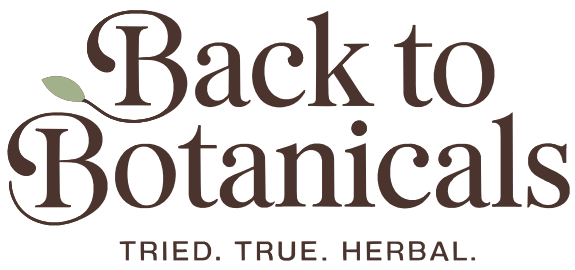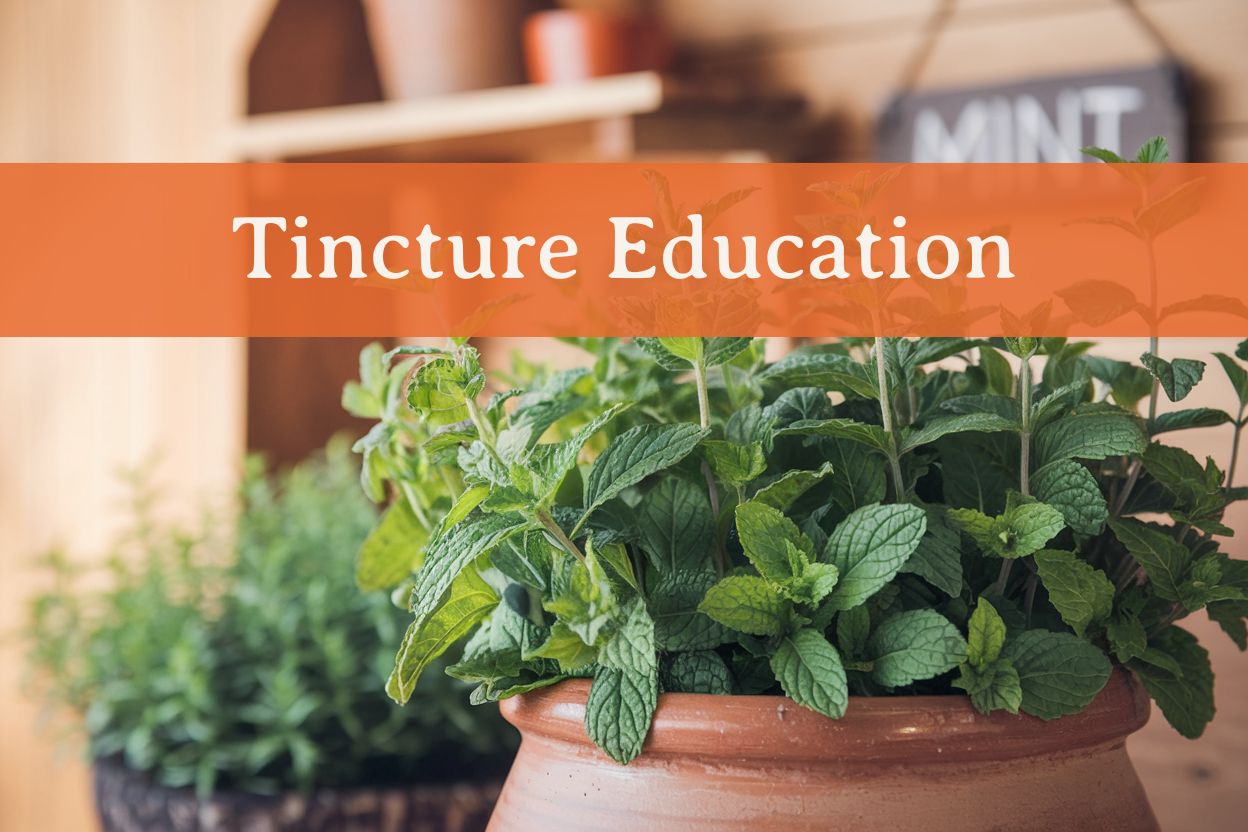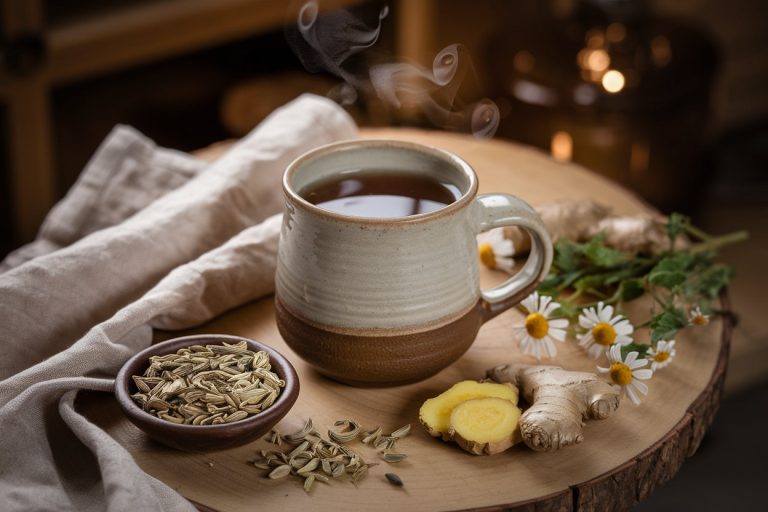Tinctures 101: What They Are & How They Work
Let’s talk tinctures. You’ve seen them—those little glass bottles with droppers, packed with plant goodness. But what exactly is a tincture? And how do you actually use one without making a face like you just bit into a lemon?
If you’re new to the world of herbal remedies, welcome. This is your no-nonsense, herb-loving primer on tinctures—what they are, how to take them, and the difference between alcohol-based and alcohol-free versions (because let’s be honest, some of those alcohol tinctures are not messing around).
So… What Is a Tincture?
A tincture is a concentrated liquid extract of an herb—like a strong tea, but way more potent. Instead of steeping the herb in hot water for a few minutes, tinctures are made by soaking herbs in either alcohol or vegetable glycerine for several weeks. This process pulls out the plant’s active compounds, giving you a powerful remedy in just a few drops.
They’re shelf-stable, fast-absorbing, and easy to use. Think of them as your herbal toolkit in a bottle—ready to go when you are.
Alcohol vs. Alcohol-Free Tinctures
Let’s break this down, because the difference matters—especially if you’ve ever tried a full-strength alcohol tincture and wondered why it felt like you just gargled with moonshine.
Alcohol-Free Tinctures (Glycerites)
- Made with vegetable glycerine and distilled water
- Sweet-tasting and gentle—great for kids, pets, sensitive adults, and anyone avoiding alcohol
- Slightly less shelf-stable than alcohol-based, but still good for several years
- Can be added to tea, juice, or taken straight
These are the ones we use most often at Back to Botanicals—and for good reason. Alcohol-free tinctures are effective, gentle enough for kids and sensitive systems, and easy on the taste buds. That said, we also carry some alcohol-based options, because sometimes they’re the best choice—especially when a particular herb needs that stronger extraction method to really do its job.
Alcohol-Based Tinctures
- Made by steeping herbs in high-proof alcohol
- Very shelf-stable
- Absorbs quickly and extracts a broader range of plant constituents
- But… they can sting. And I mean sting. Especially if you take them straight.
If you’ve ever tried an alcohol tincture from a different company and it felt like your mouth was on fire—yep, that’s the alcohol talking. Some folks dilute it in a little water or juice to take the edge off. But for many, especially littles or those with sensitive systems, it’s just not worth the burn.
When Alcohol Tinctures Are the Better Choice
While alcohol-free tinctures are our go-to for everyday use, there are times when an alcohol-based tincture is simply better. Some herbs contain compounds that extract far more effectively in alcohol than in glycerine. Without the alcohol, you’d miss out on some of the herb’s most potent properties.
Alcohol also preserves a wider spectrum of plant constituents and keeps the tincture shelf-stable for decades—making it a strong choice when potency and longevity are priorities.
We offer a small number of alcohol-based options for this reason. If a specific herb truly requires alcohol for a complete extraction—or if you personally prefer it for absorption speed or tradition—it’s good to have that option. Just know it’s strong stuff. A little water or juice can take the edge off if the burn is too intense (trust us—we’ve been there).
How Do You Take a Tincture?
Simple as can be. You’ll use the dropper to measure your dose (the Suggested Use on the label will tell you how much). You can:
- Drop it straight under your tongue (fastest absorption)
- Add it to a little water, juice, or herbal tea
- Mix it into a spoonful of honey or applesauce for picky kids
Pro tip: If you’re using an alcohol-free tincture, you don’t have to mask the flavor—it’s usually sweet and mellow on its own.
When to Use a Tincture
Tinctures shine when you want fast, flexible herbal support. They’re great for:
- Busy schedules (no brewing needed)
- Middle-of-the-night wakeups (we see you, teething babies and restless mamas)
- On-the-go wellness (keep one in your bag, car, or diaper caddy)
They’re also ideal when consistency matters. Because they’re so easy to take, it’s simpler to stay on track when using herbs over time.
Final Thoughts from Your Herbal Grandma-in-Spirit
Tinctures are one of the oldest, most trusted ways to work with herbs—and for good reason. They’re practical, potent, and easy to fit into modern life. Whether you’re new to natural remedies or have a whole shelf full of them, understanding how tinctures work (and why alcohol-free might be your best friend) makes all the difference.
Because no one needs to dread their daily dose—or feel like their mouth just got hit by a shot of firewater.


